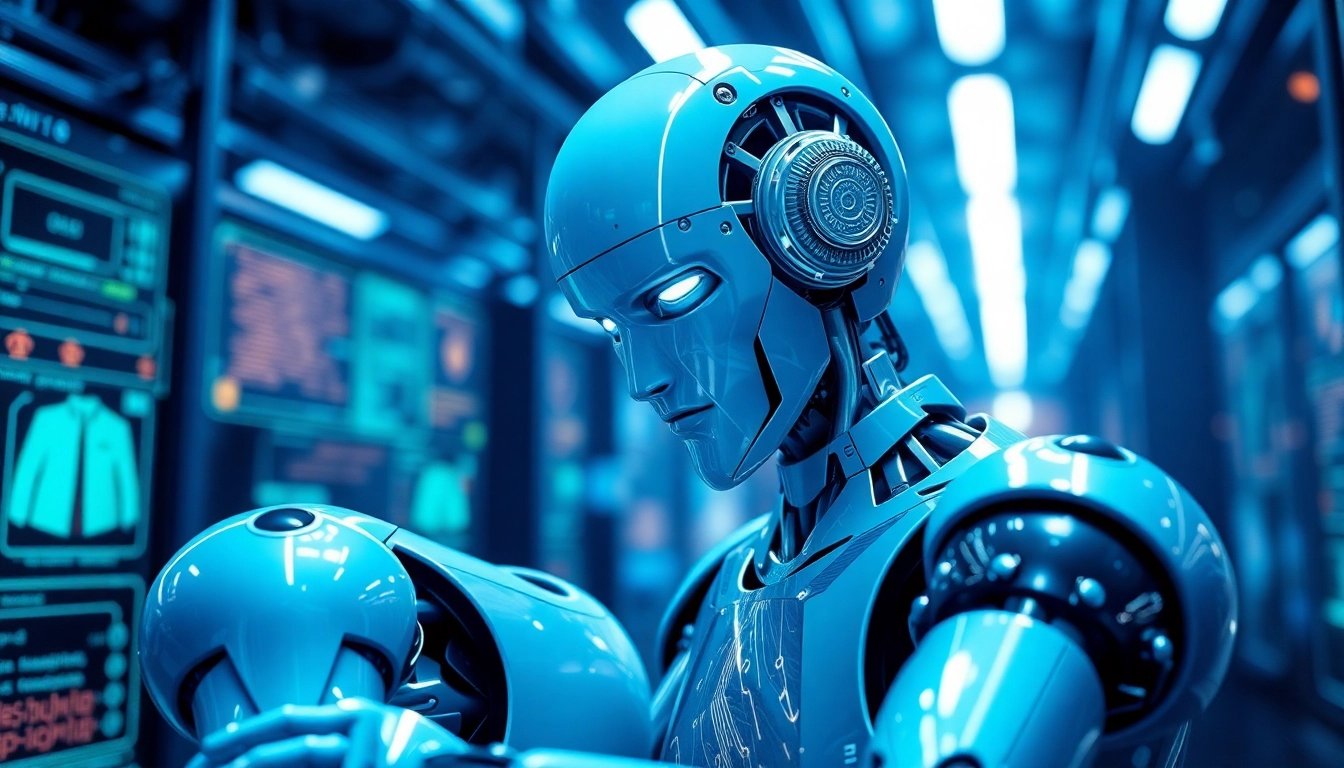Understanding AI Agents
In recent years, AI agents have emerged as a significant innovation in the field of artificial intelligence, revolutionizing how tasks are performed across various industries. These intelligent software systems are designed to pursue specific goals and execute tasks on behalf of users. By utilizing advanced algorithms, AI agents can exhibit reasoning skills, planning capabilities, and even retain memory to make informed decisions autonomously. This article delves deep into the definition, workings, types, benefits, and impacts of AI agents, equipping readers with comprehensive knowledge about this groundbreaking technology.
Definition of AI Agents
An AI agent can be defined as a software system that autonomously operates in a given environment to achieve predetermined goals. The essence of an AI agent lies in its ability to perceive its surroundings, perform actions based on its observations, and adapt its behavior in response to changes within the environment. AI agents are capable of learning from their experiences, continuously improving their performance over time.
How AI Agents Work
The functionality of AI agents is grounded in a variety of components that allow them to interact with both users and their environment effectively. At the core of an AI agent’s operation are:
- Perception: AI agents utilize sensors and data inputs to gather information about their environment. This process may involve machine learning techniques to interpret and understand the input data.
- Decision-Making: Once the necessary data is collected, AI agents analyze this information using algorithms, which may incorporate artificial neural networks and other data-processing models. Here, they devise potential actions through reasoning and planning mechanisms.
- Action: After determining the optimal action, the agent executes it in the real world, whether by sending a command to a robotic system or generating responses in a conversational context.
- Learning: AI agents also incorporate feedback mechanisms whereby they learn from the results of their actions, adjusting their behavior to maximize their effectiveness over time.
Types of AI Agents
AI agents can be categorized into several types based on their functionality and design. Understanding these distinctions can help organizations choose the right kind of agent for their specific needs:
- Simple Reflex Agents: The most basic type, which acts solely on the current perceptual input without memory of past actions.
- Model-Based Reflex Agents: These agents maintain an internal state of the world to better evaluate their actions based on previous outcomes.
- Goal-Based Agents: This type pursues specific goals and can consider future actions to achieve these objectives effectively.
- Utility-Based Agents: These go beyond simple outcomes and strive to maximize a “utility” function, determining the best action based on a combination of factors.
- Learning Agents: Equipped with the ability to learn and adapt from their experiences, these agents can improve their performance and effectiveness over time.
Benefits of Implementing AI Agents
The integration of AI agents into various processes offers organizations multiple advantages, from enhanced operational efficiency to significant cost savings. The following sections explore these benefits in greater detail.
Improving Efficiency
AI agents can handle repetitive and mundane tasks with greater speed and accuracy than their human counterparts. By automating routine responsibilities, organizations can free up human resources for more complex and strategic initiatives. The automation allows for streamlined operations, faster response times, and optimal workflow management, ultimately resulting in a more productive workforce.
Cost Savings
One of the most compelling reasons to implement AI agents is the potential for substantial cost savings. By minimizing the need for human labor in repetitive tasks, organizations can significantly reduce operational costs. Moreover, AI agents can operate around the clock without breaks or downtime, leading to improved productivity without the associated human resource costs.
Enhancing Customer Experience
AI agents can drastically enhance customer service experiences by providing instantaneous responses to inquiries and personalized support based on customer data. Employing AI in chatbots and virtual assistants allows businesses to resolve issues promptly, improving customer satisfaction and loyalty. Furthermore, tailored recommendations generated by AI can lead to increased sales and customer retention.
Common Use Cases for AI Agents
AI agents have found applications across various sectors, bringing innovation and efficiency. Below are some common use cases that exemplify their versatility and effectiveness.
Customer Support Automation
AI agents are particularly effective in automating customer support functions. By employing AI-driven chatbots, businesses can manage high volumes of customer inquiries without the need for human intervention. These chatbots can handle FAQs, troubleshoot simple issues, and escalate more complex tasks to human agents when necessary, ensuring that customers receive quick and efficient responses.
Data Analysis and Decision Making
AI agents excel in processing vast quantities of data to unearth insights that can inform decision-making. Businesses can utilize AI algorithms to analyze customer behaviors, market trends, and operational efficiencies, allowing them to make data-driven strategies. This capability is particularly beneficial in industries like finance, where predictive analytics can lead to better investment decisions.
Home Automation Systems
Smart home technology has seen a significant surge due to the rise of AI agents. These agents control various home devices, from lighting and climate control to security systems, ultimately making households more efficient and secure. Home automation can enhance comfort, safety, and energy savings for users.
Challenges in Developing AI Agents
While AI agents present significant opportunities, various challenges must be addressed during their development and deployment. A deep understanding of these challenges is essential for effective implementation and user acceptance.
Technical Limitations
AI agents rely on sophisticated algorithms and substantial data. However, technical limitations in availability or quality of data can impede the performance of AI agents. Moreover, developing an AI agent that can adapt to dynamic environments and handle unexpected scenarios remains a major hurdle.
Ethical Considerations
The deployment of AI agents raises several ethical questions, including issues like bias in decision-making and the implications of privacy. Organizations must ensure that AI systems are trained on diverse datasets to minimize bias and have transparency in their functioning to enhance trust among users.
User Acceptance and Trust
User acceptance is crucial for successful AI integration. There may be skepticism regarding AI agents’ capabilities or apprehension about data privacy. Organizations need to communicate the value and capabilities of AI clearly, emphasizing safety and reliability to gain users’ trust.
Future Trends in AI Agents
Looking forward, various trends will shape the trajectory of AI agents, influencing how they integrate into our daily lives and operations within organizations.
Emerging Technologies
The emergence of technologies such as 5G will enhance the capabilities of AI agents, enabling real-time processing and decision-making. Furthermore, advancements in natural language processing and computer vision will improve how agents communicate and interact with users, making them more intuitive and efficient.
Integration with Other AI Systems
AI agents will increasingly interact with other AI systems, leading to collaborations that enhance functionality. For example, integrating AI agents in autonomous vehicles with environmental sensing systems can ensure safer navigation. Such integrations will pave the way for more intelligent systems across various domains.
Predicted Market Impact
Market predictions indicate that demand for AI agents will escalate dramatically across industries, with businesses willing to invest substantially in AI-driven automation strategies. As AI technology advances, we expect an increase in the variety and complexity of AI agents, making them indispensable components of organizational infrastructure.



